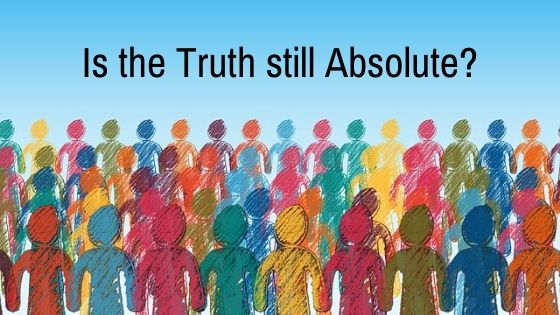In the contemporary landscape, the delineation between truth and falsehood has become increasingly nebulous. The phenomenon of a “post-truth society” encapsulates the perplexities of a world where emotional resonance frequently supersedes factual accuracy. This construct is particularly relevant in discussions surrounding the teachings of Bahá’u’lláh, the founder of the Bahá’í Faith, who espoused principles that ardently advocate for truthfulness and unity. This article seeks to dissect the underpinnings of the post-truth phenomenon, explore its historical inception, and offer intrinsic Bahá’í insights on navigating this complex reality.
The term “post-truth” gained prominence in the 21st century, particularly amidst the tumultuous political climates globally. It denotes a culture where subjective feelings and personal beliefs significantly influence public opinion, often undermining objective truths rendered evident by empirical evidence. To understand how we arrived at this juncture requires a foray into the socio-political and technological shifts that catalyzed this transformation.
Historically, the advent of the internet and social media has fundamentally altered the dissemination of information. Previously, robust gateways existed to curtail the spread of misinformation, such as credible news outlets and academic institutions. However, the democratization of information led to a proliferation of platforms where anyone with an internet connection can broadcast opinions, regardless of their veracity. This significant alteration in the information ecosystem has engendered an environment rife with echo chambers and polarized viewpoints.
The ramifications of this digital revolution are profound. Feelings drive individuals to curate their information consumption, often gravitating toward sources that align with their pre-existing beliefs. Consequently, this insularity breeds a culture that negotiates truth through a subjective lens, where reasoned debate is superseded by emotive assertion. In this milieu, the teachings of Bahá’u’lláh exhort the criticality of pursuing truth and cultivating unity among humanity, principles that stand in stark contrast to the prevailing currents of dissonance and division.
Central to the Bahá’í teachings is the notion that the pursuit of truth is not merely a philosophical endeavor but a moral imperative. Bahá’u’lláh emphasized that truthfulness is integral to the development of a harmonious society. This foundation advocates for rigorous intellectual engagement and forthright dialogue, urging individuals to transcend dogmatic assertions and operate on shared human values. Such values resonate deeply in a post-truth society, where restoring faith in truth necessitates collective effort.
To counteract the pervasive disarray of misinformation, individuals must cultivate critical thinking—a skill that allows one to discern truth from fabrication. Informed discourse is vital for the sustenance of a healthy democracy and a vibrant society. Bahá’í teachings underscore the importance of education as a mechanism for fostering critical inquiry. A commitment to lifelong learning and active engagement with diverse perspectives emerges as essential tenets for combatting the erosion of trust and promoting enlightenment.
Moreover, Bahá’í doctrine emphasizes the significance of unity in diversity. This embodies not only acceptance across varying beliefs but also an imperative to engage in constructive dialogue. As factions proliferate within an increasingly fragmented socio-political landscape, Bahá’í principles encourage individuals to rise above ephemeral divides and engage in open discourse. Such dialogues can help dismantle barriers and foster mutual understanding, offering a counterbalance to the convulsive environment engendered by post-truth narratives.
Practically, promoting a culture that values truth requires both individual and collective actions. Cultivating spaces for open discussion, establishing honest communication channels, and actively challenging misinformation are critical facets of this endeavor. Communities can foster initiatives aimed at debunking prevalent myths and misinformation, channeling Bahá’í teachings into actionable steps that promote truthfulness.
In addressing the disquiet that accompanies a post-truth society, one cannot overlook the role of emotional intelligence. Understanding the underlying emotional stimuli that propel individuals’ attachment to certain beliefs allows for more empathetic dialogues. The Bahá’í teachings emphasize the importance of compassion in interpersonal interactions, asserting that fostering empathy can help bridge divides and create a more cohesive society. This approach is indispensable when confronting deep-seated beliefs that may not align with empirical realities but resonate on a personal level.
In sum, navigating the complexities of a post-truth society is an inherently intricate task requiring both introspection and collective action. The teachings of the Bahá’í Faith provide a blueprint for reinstating rational discourse and ethical engagement in public spheres. By committing to the pursuit of truth and championing unity amid diversity, individuals are endowed with the ability to transcend the divisive currents of contemporary society. The path forward lies not only in discerning fact from fiction but in cultivating an ethos that celebrates truth as a communal value, thus ensuring the elevation of individual and collective consciousness in the face of the challenges that define our post-truth reality.
